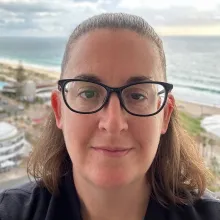Interconnect Health Research: Work Package 1
Interconnect Health Research is a five-year project funded by the Medical Research Future Fund, working to develop co-designed, integrated, person-centred models of care to improve the physical and mental health of people with innate variations of sex characteristics (intersex variations/differences of sex development).
Project status
Content navigation
About

Interconnect Health Research is a five-year project funded by the Medical Research Future Fund, working to develop co-designed, integrated, person-centred models of care to improve the physical and mental health of people with innate variations of sex characteristics (intersex variations/differences of sex development).
People with IVSCs are a diverse population who share experiences of having innate sex characteristics (such as chromosomes, gonads or hormones) that differ from medical norms for female or male bodies. People with IVSCs have health needs that must be addressed in a timely way across all life stages, and in ways that respect their rights, values and preferences.
The Interconnect team is drawn from a consortium of 12 partners from the higher education, community services, and health sectors. The project has been developed to have three distinct work packages to integrate resourced clinical and community psychosocial support, improve understanding of the health and wellbeing needs of adults and adolescents with IVSCs, and develop new bioethical frameworks informed by lived experience and psychosocial expertise.
Researchers from the Centre for Mental Health Research at The Australian National University—Professor Alison Calear, Professor Philip Batterham and Dr Alyssa Morse—are Chief Investigators with the Interconnect Health Research Project, contributing to Work Package 1 of the project.
Visit the official study website
Work Package 1: Integrating resourced clinical and community psychosocial support
This Work Package aims to develop, implement and evaluate clinical and peer-led models of care that centre psychosocial support in coordination and provision of healthcare services to children with IVSCs and their families, that reflect community and human rights expectations and new regulatory norms; integrate best practice clinical and peer-led psychosocial support; promote the faster adoption of best practices developed in the ACT and national peer-led services, by health professionals in other settings. Including:
- Improve the quality and ongoing accessibility of affirmative physical and wellbeing services for the IVSC community, including those with intersectional disadvantage.
- Enhance peer-led and clinical psychosocial services to meet community expectations.
- Provide evidence to support informed decision-making in clinical and peer-led settings.
- Put in place mechanisms to improve self-knowledge, service continuation, community
- Engagement and improved agency in health-seeking behaviour across the lifespan.
Research Team
Work Package 1 is being conducted by a collaborative research team, including investigators from ANU, University of Sydney, University of Southern Queensland, and Canberra Health Services.
Participate in our research
The ANU members of the research team are evaluating an ACT-based clinical model of care providing psychosocial support for children and young people with variations in sex characteristics, and their families.
We are conducting interviews and surveys exploring what facilitates and challenges the implementation of psychological and social support (psychosocial support) for children and young people with Variations in Sex Characteristics and their families. This includes how the VSCPSS fits with existing services, systems and practices, and the potential impacts of related legislative reforms. We will also be exploring experiences and outcomes of the service for children, young people and their families.
This research may help us to support the effective implementation and delivery of psychosocial care for children and young people with Variations in Sex Characteristics.
If you are interested in participating in the evaluation, or would like to learn more about our research, please contact Dr Alyssa Morse (alyssa.morse@anu.edu.au)



